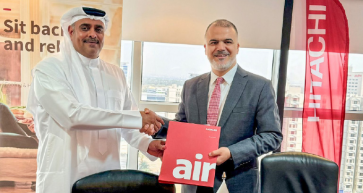
Business Expert, Pria Masson Tanwar, explores franchises and brands, and what it means for your business.
The other day, while driving down one of the busy highways here, I noticed how many new eateries seem to have opened. Somehow, it got me thinking about the business case for having your own brand versus franchising an established brand – which is also a popular route in the GCC region. Both routes have their own set of advantages and disadvantages. So, this month, I thought I would delve into understanding the key legal and business aspects that need to be assessed when making this decision.
To simplify this complex decision process, I have categorised the key factors into the four R’s of the decision-making process:
Reason, Realm, Resources and Restrictions.
Reason
This is the core question that needs an answer at several points of the life cycle of any business. The Reason refers to asking several “why” questions. Why is there demand for the product or service being offered? Why will the customer choose your product or service instead of a competitor’s? Why is the product or service being offered in its chosen location? Why will the customer continue to focus on your product or service? These questions are critical because they define the way forward. So, whether you want a to start a brand or franchise one, depends on whether the product or service is catering to a specific audience, to a specific experience, or to an experience that has the potential to make money. For instance, if there is a market for a specialised coffee or cupcakes or a children’s activity, but it requires a certain brand to back it, then a franchise or quasi franchise could be a way forward. A quasi franchise is leasing the equipment from a specific brand and marketing based on the reputation of that brand.
 Realm
Realm
The Realm is nothing but the scope of your product or service. If your offering has the scope for expansion across product lines, or geographies, or both, then the question to ask is what will be the reason across each of the new product lines. Will new geographies benefit from a branded backing or will there be some benefit from being a regionally grown brand? With Realm, the key consideration is what is the scope that a franchise agreement could have without being financially debilitating. For instance, if you have a regional franchise for Starbucks or Zara, while the realm of expansion is tremendous, it does mean that the fees involved will be equally tremendous. Usually, for each product or geography there will be a payout either as a minimum commitment or a commission on sales or even both. On the other hand, if you have a home grown brand, the marketing to establish the brand and creating brand loyalty could be a separate price to pay.
Resources
This is one of the driving forces of most business decisions – how much money will it entail. However, Resources covers more than money. It is connections, physical infrastructure, local know-how, knowledge of the market – the list is long and covers everything it takes to take the offering to a customer. The decision to be made is, who has access to the more critical resources and what value can be attributed to those resources. A new product in the technology space, for instance, greatly benefits from experience of how the product works. In this case, franchising or tying up with the owner, could be a smart way forward. On the other hand, if your offering is bringing in a new confectionary item where the key to success lies in effective marketing, cost efficiencies and supply chain management – not having the burden of up-front fees could ease out the process. The other aspect to resources that needs to be kept in mind is that the specifications that usually come with a franchise are stringent in relation to the experience. So, a franchised coffee shop needs to look a certain way, staff needs to be trained and products need to be maintained at a certain level. The costs of these are usually borne by the local partner. The final experience often pays for itself, but the cash-outgo needs to be factored in.
Restrictions
Every business has its risks and its restrictions. With franchise agreements however, the restrictions are sometimes more critical than in other businesses. This is because, the company is giving a lot of knowledge as part of the franchising agreement and it will ensure protection of that knowledge. So usually, a franchisee cannot enter a competing business for a long time. Any failure or dilution of the franchise involves payouts and geographic restrictions limit the scope of what you can do with the final offering. A franchise is not your business in all practicality – it is you leasing a business and bearing the risk of running it. You can make a tremendous success of it and make a lot of money, but the creative elements and passion that often drives entrepreneurs as something being “your own” goes amiss. On the other hand, being the person who has the right to operate a renowned school, hospital, hotel, retail store or cupcake shop, can have its own unique charm, money, and scope for growth.
In business and in marriage, choose your partner well, because the right partner can pave your way to growth and sometimes being alone, is better than being with a partner who adds weight to your daily life.
 Pria is a business consultant and advisor. You can follow Pria at her Instagram handle businessclues33 or read more of her articles at www.business-clues.com
Pria is a business consultant and advisor. You can follow Pria at her Instagram handle businessclues33 or read more of her articles at www.business-clues.com



